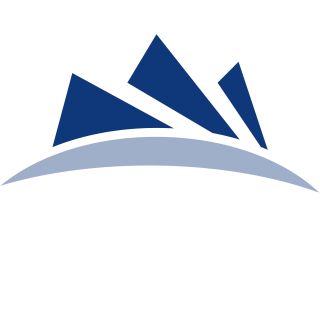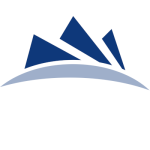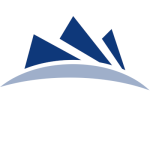Hello, you're listening to Tech Talks, a podcast by the Technology Education Collaborative.
Tech is an Arizona nonprofit that supports the secure, thoughtful use of technology by
empowering people with information about the technology they use each and every day.
Today we're sitting down with Connor Johnson.
He's a web support specialist for Midwestern University.
Thanks for being here, Connor.
Thanks for having me on, Christina.
So the way this works is we bring in a working technologist and we ask them five questions.
Everybody gets asked the same five questions, but what we've found is that the answers can
vary wildly.
So the first question is pretty straightforward.
It's the easy one.
What is your title and position?
So the name of my position is web support specialist.
I currently work at Midwestern University.
We've been going through and doing a redesign of their website.
They used to be on a older CMS, which just stands for content management system.
All that is, is it's a very easy way for multiple employees to be able to go through and edit
content on a website and we can go through on the back end and still have control.
What specifically does your day to day look like?
If somebody had your job or was thinking about going into web development, like what would
they be doing every day?
So usually how the day starts is with a team meeting.
We usually touch base and figure out, okay, what section of the website do we need to
add any edits to?
Are there any projects we're working on?
Currently, we're working on building out the intranet, which is the content on the back
end that only students and faculty are going to be able to see.
We'll go through and pitch different ideas about how we're going to go through and build
out different sections of the website.
What's the best framework?
What's the best time frame in order to get this done?
Things of that sort.
Imagine as you're doing this, the website still needs to be functioning for the university
at the same time.
So I'm assuming there's some consideration about like making sure that the website is
still operable from a user perspective while you're also kind of transitioning it or rebuilding
it.
Is that accurate?
Correct.
So there's certain sections of the website we currently have in the previous version
that are still up online.
But for the most part, we've gone through and in sections, we've transitioned over to
our new content management system called Drupal.
Okay.
All right.
And then what's your favorite thing about your job?
I would have to say my favorite part of the job is working with my teammates.
I get to work with two people out of Chicago, Illinois, and I really enjoy collaborating
with them, bouncing off ideas, just talking about life and all that when we're not on
the clock.
So what's your least favorite part of the job?
Because no matter how much you love what you do, there's always something you don't love
to do.
The part of the job that I'm not super fond of is trying to figure out what the user wants
when they don't really know what they want.
But yeah, I could see how that would be challenging.
Just be more specific.
It's actually, that's a good insight.
Last question.
What is the one practical thing that you would want someone who is considering pursuing the
specific position to know?
I think the biggest misconception with IT is people underestimate the amount of collaboration
you're going to have to do within your day to day job.
Because a lot of the time IT gets the whole stigma of, oh, it's just nerds kind of in
the back of the building.
With the AV cart.
Exactly.
But you're going to have to deal with all kinds of different people.
I mean, just going through and learning how to deal with people of all different kinds
is going to be important no matter what kind of field you go into.
Okay.
And then the last question that I always like to ask people is, do you have any personal
passion projects or organizations you're involved with or anything that you're working on in
your own time that's kind of fun or any technical related interests that you want to share?
So currently I've been redesigning the website for the Advanced Cyber Systems Lab over at
a Gateway Community College.
They've been big supporters of tech.
So currently I've been going through and rebuilding it out in what's called Middleman.
It's a static site generator.
What that means is it's a very basic way of making a website where you take HTML and CSS
and then the static site generator will go through and spin up the website for you on
the server when it gets requested.
And what do you like about that?
It's a very simple, clean way of making websites.
One of the things I like about Drupal is that you can make sites that are a little bit more
dynamic.
So yeah, it's a matter of looking at the project and just kind of laying out, hey, here's all
the requirements.
What kind of framework would make the most sense for it?
Do we want to go all out with a dynamic website or do we want to just keep it very simple?
Hey, we just need people to know that we exist basically.
I happen to know that you're involved with a local tech organization.
I happen to know that you're a board member of this organization, right?
You just recently got onto the board of the Technology Education Collaborative.
Yeah.
Very excited about that.
Thank you for letting me join.
Yeah, of course.
For the record, this podcast was scheduled before that happened.
But no, that's about it.
So thank you so much for your time and thanks for coming.
Thank you for having me on.
This episode was recorded at the Advanced Cyber Systems Lab at Gateway Community College
at the Washington campus.
The ACSL is a tech hub open to the general public where you can use a 3D printer, record
a podcast, practice advanced tech skills on one of our servers and do a whole lot more,
all free of charge.
If you don't know how to do any of that, but you'd like to learn, go ahead and stop by.
There's plenty of folks who can teach you.
We're open Monday through Thursday, 4 p.m. to 8 p.m.
We'll see you next time.



